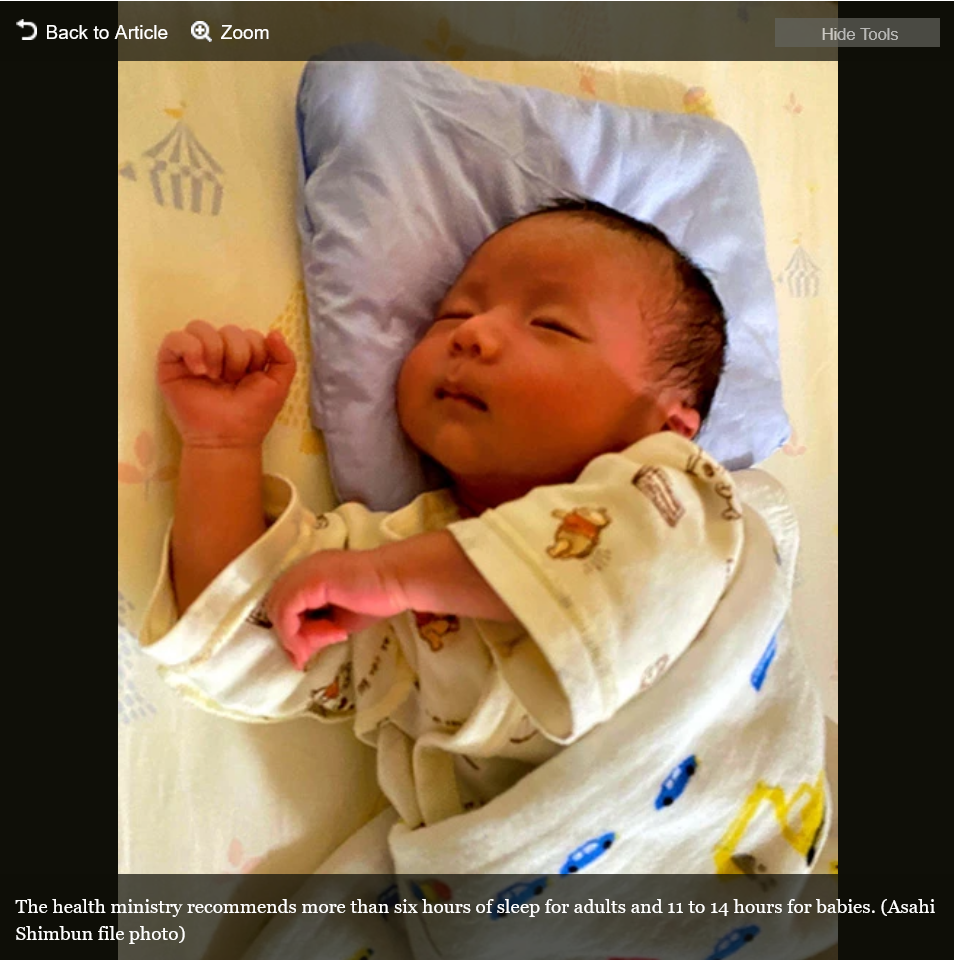Health ministry urges 6 or more hours of sleep for adults
https://www.asahi.com/ajw/articles/15020874

Sleep-starved Japanese adults need to shoot for at least six hours of slumber a night, according to the health ministry’s recommendations on improving the duration and quality of the nation’s sleep.
Fully 37.5 percent of men and 40.6 percent of women in Japan sleep less than six hours a day on average, according to a health ministry survey in 2019.
Japanese sleep an average of seven hours and 22 minutes a night, the shortest among 33 countries surveyed by the Organization for Economic Cooperation and Development (OECD) in 2021.
In response to this alarming data, the ministry's draft guidelines present recommended amounts of sleep by age group: six hours or more for adults; 11 to 14 hours for 1- to 2-year-olds; 10 to 13 hours for 3- to 5-year-olds; nine to 12 hours for elementary school children; and eight to 10 hours for junior and senior high school students.
The draft guidelines, released on Oct. 2, will be finalized within this year.
Experts believe six to eight hours of sleep each day is ideal for adults, since depression, cancer, stroke, heart disease and other conditions are lowest among people who sleep around seven hours a day.
However, the optimal amount of sleep can vary from person to person, depending on age, daily activities and other factors.
Reports suggest that lack of sleep will lead to depressive symptoms and lower academic performance in children.
In contrast, elderly people are advised to avoid sleeping too much as they tend to spend more time in bed and take more naps. Also, some reports suggest that sleeping more than eight hours a day increases the risk of death for older people.
Getting a proper amount of sleep helps reduce the risks of cardiovascular disease and depression, according to the ministry.
To improve sleep quality, the guidelines advise against eating a meal, drinking alcohol or using a smartphone or other gadgets before going to bed.
Other recommendations include keeping the bedroom dark and avoiding caffeine in the evening. The ministry said caffeine consumption should be less than 400 milligrams, equivalent to two cups of coffee a day.
